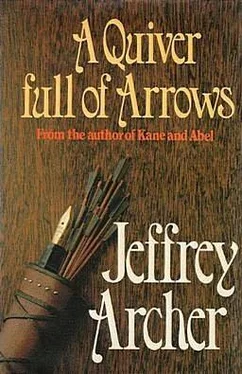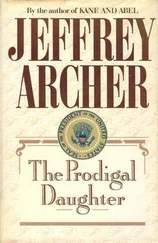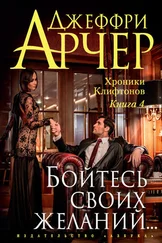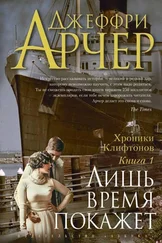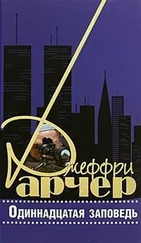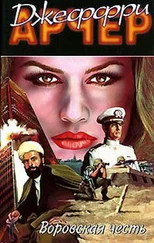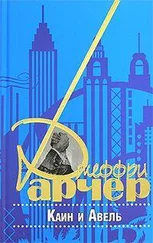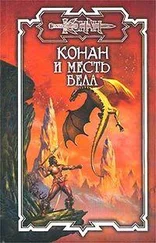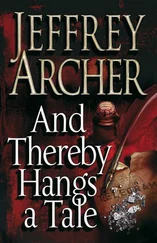I remained silent and four matches later, he said, “Before I begin, take a look at the man sitting over there in the corner with the young blonde.”
I turned and glanced back toward the dining room area, and saw a man attacking a porterhouse steak. He looked about the same age as Eric and wore a smart new suit that was unable to disguise that he had a weight problem: only his tailor could have smiled at him with any pleasure. He was seated opposite a slight, not unattractive strawberry blonde of half his age who could have trodden on a beetle and failed to crush it.
“What an unlikely pair. Who are they?”
“Harry Newman and his fourth wife. They’re always the same. The wives, I mean — blond hair, blue eyes, ninety pounds and dumb. I can never understand why any man gets divorced only to marry a carbon copy of the original.”
“Where does Edward Shrimpton fit into the jigsaw?” I asked, trying to guide Eric back onto the subject.
“Patience, patience,” said my host, as he relit his cigar for the second time. “At your age you’ve far more time to waste than I have.”
I laughed and picked up the cognac nearest to me and swirled the brandy around in my cupped hands.
“Harry Newman,” continued Eric, now almost hidden in smoke, “was the fellow who beat Edward Shrimpton in the final of the club championship that year, although in truth he was never in the same class as Edward.”
“Do explain,” I said, as I looked up at the board to check that it was Newman’s name that preceded Edward Shrimpton’s.
“Well,” said Eric, “after the semi-final, which Edward had won with consummate ease, we all assumed the final would only be a formality. Harry had always been a good player, but as I had been the one to lose to him in the semi-finals, I knew he couldn’t hope to survive a contest with Edward Shrimpton. The club final is won by the first man to twenty-one points, and if I had been asked for an opinion at the time I would have reckoned the result would end up around 21-5 in Edward’s favor. Damn cigar,” he said, and lit it for a fourth time. Once again I waited impatiently.
“The final is always held on a Saturday night, and poor Harry over there,” said Eric, pointing his cigar toward the far corner of the room while depositing some more ash on the floor, “who all of us thought was doing rather well in the insurance business, had a bankruptcy notice served on him the Monday morning before the final — I might add through no fault of his own. His partner had cashed in his stock without Harry’s knowledge, disappeared, and left him with all the bills to pick up. Everyone in the club was sympathetic.
“On Thursday the press got hold of the story, and for good measure they added that Harry’s wife had run off with the partner. Harry didn’t show his head in the club all week, and some of us wondered if he would scratch from the final and let Edward win by default since the result was such a foregone conclusion anyway. But the Games Committee received no communication from Harry to suggest the contest was off, so they proceeded as though nothing had happened. On the night of the final, I dined with Edward Shrimpton here in the club. He was in fine form. He ate very little and drank nothing but a glass of water. If you had asked me then, I wouldn’t have put a penny on Harry Newman even if the odds had been ten to one.
“We all dined upstairs on the third floor, since the Committee had cleared this room so that they could seat sixty in a square around the board. The final was due to start at nine o’clock. By twenty to nine there wasn’t a seat left in the place, and members were already standing two deep behind the square: it wasn’t every day we had the chance to see a world champion in action. By five to nine, Harry still hadn’t turned up and some of the members were beginning to get a little restless. As nine o’clock chimed, the referee went over to Edward and had a word with him. I saw Edward shake his head in disagreement and walk away. Just at the point when I thought the referee would have to be firm and award the match to Edward, Harry strolled in looking very dapper, adorned in a dinner jacket several sizes smaller than the suit he is wearing tonight. Edward went straight up to him, shook him warmly by the hand, and together they walked into the center of the room. Even with the throw of the first dice there was a tension about that match. Members were waiting to see how Harry would fare in the opening game.”
The intermittent cigar went out again. I leaned over and struck a match for him.
“Thank you, dear boy. Now, where was I? Oh, yes, the first game. Well, Edward only just won the first game and I wondered if he wasn’t concentrating or if perhaps he had become a little too relaxed while waiting for his opponent. In the second game the dice ran well for Harry and he won fairly easily. From that moment on it became a finely fought battle, and by the time the score had reached 11-9 in Edward’s favor the tension in the room was quite electric. By the ninth game I began watching more carefully and noticed that Edward allowed himself to be drawn into a back game, a small error in judgment that only a seasoned player would have spotted. I wondered how many more subtle errors had already passed that I hadn’t observed. Harry went on to win the ninth, making the score 18–17 in his favor. I watched even more diligently as Edward did just enough to win the tenth game and, with a rash double, just enough to lose the eleventh, bring the score to 20 all, so that everything would depend on the final game. I swear that nobody had left the room that evening, and not one back remained against a chair; some members were even hanging on to the window ledges. The room was now full of drink and thick with cigar smoke, and yet when Harry picked up the dice cup for the last game you could hear the little squares of ivory rattle before they hit the board. The dice ran well for Harry in that final game and Edward only made one small error early on that I was able to pick up; but it was enough to give Harry game, match and championship. After the last throw of the dice everyone in that room, including Edward, gave the new champion a standing ovation.”
“Had many other members worked out what had really happened that night?”
“No, I don’t think so,” said Eric. “And certainly Harry Newman hadn’t. The talk afterward was that Harry had never played a better game in his life and what a worthy champion he was, all the more for the difficulties he labored under.”
“Did Edward have anything to say?”
“Toughest match he’d been in since Monte Carlo and only hoped he would be given the chance to avenge the defeat next year.”
“But he wasn’t,” I said, looking up again at the board. “He never won the club championship.”
“That’s right. After Roosevelt had insisted we help you guys out in England, the club didn’t hold the competition again until 1946, and by then Edward had been to war and had lost all interest in the game.”
“And Harry?”
“Oh, Harry. Harry never looked back after that; must have made a dozen deals in the club that night. Within a year he was on top again and even found himself another cute little blonde.”
“What does Edward say about the result now, thirty years later?”
“Do you know, that remains a mystery to this day. I have never heard him mention the game once in all that time.”
Eric’s cigar had come to the end of its working life and he stubbed the remains out in an ashless ashtray. It obviously acted as a signal to remind him that it was time to go home. He rose a little unsteadily and I walked down with him to the front door.
“Goodbye, my boy,” he said, “do give Edward my best wishes when you have lunch with him tomorrow. And remember not to play him at backgammon. He’d still kill you.”
Читать дальше
